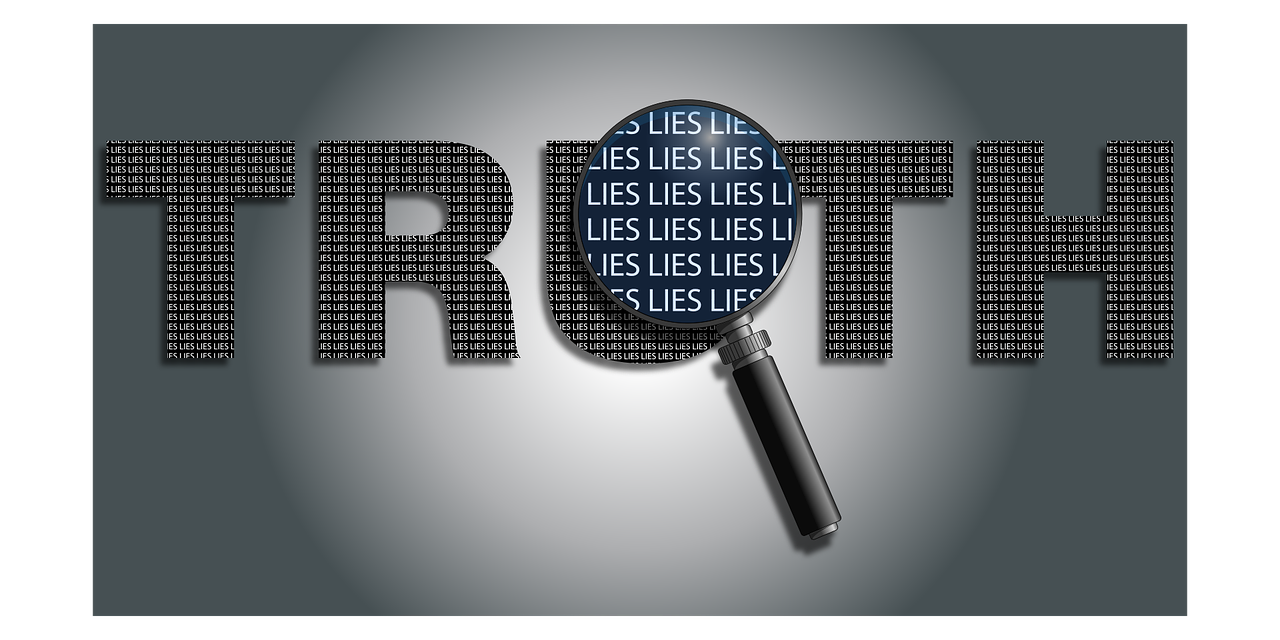Big Little Truths
It’s universally taught across humanity that lying is wrong. So standard that it’s essentially cliche, and so easily ignored. This is especially true for adults (see my article “Suffer the Big Babies) who think that they can get away with it because they’re adults.
When I was a kid, nothing was more irritating to my dad than lying. It wasn’t until I grew up that I fully understood why.
Before I go on, let me be clear: I’m not talking about little white lies (“Gee, you DO look thinner!”) or big good lies (“OK Mr. Nazi, there aren’t any Jews hiding in my attic!”) Those are different creatures than the ones I’m addressing.
Soap operas, and drama in general, are excellent exhibits on why lying is bad. I would guess at least 99% of soap opera storylines are based on a lie and the subsequent damage it creates. Most of my favorite shows are indeed built on the idea of lies as massively powerful drivers of intrigue and entertainment.
What’s true about lies? Pardon the pun.
Lies create a burden on us-we have to remember what we said, and to whom, and when…and it’s stressful. Lies are ravenous. They need to be fed all the time. The stress of giving them our mental energy makes it harder for us to excel.
Lies are also expensive. Think of how much we spend on criminals and politicians (redundant?) to expose the truth. Think of how much their lies cost in other ways. Look at how much money we waste on political campaigns, which are sometimes just flat out lies.
Lying creates increasingly hardened barriers and breeds mistrust between people.
One of the worst things a lie does is take away the ability to make informed choices. They warp the ability to make good decisions. This, I came to understand, was the crux of my father’s hatred for lying. How can a parent protect a child when the child is feeding them false information? How can voters and consumers make good choices for themselves and their community when they are told that 1 plus 1 equals 5? Denying the right to informed choice can be deadly. And political lying is a direct attack on the heart of democracy.
Jesus famously told his followers “And you will know the truth, and that truth will set you free.” Pontius Pilate responded to Jesus’ saying that he was a “witness to truth” with the seemingly flippant quip “but what is truth?”
I suppose it depends on what your definition of is, is.
Truth indeed sets us free. Free of the burdens of lying. Free of the tangle of secondary problems created by lying. Truth, even when it’s hard and painful, can accompany humility and vulnerability which in turn can lead us to deeper connection.
Truth is the remedy for lies as well as the preventative medicine for lying’s destruction. Truth can repair breaches between us. Truth is more powerful than lies.
I will close with this powerful and simple statement from the Hindu Mundaka Upapanishad. (https://en.wikipedia.org/wiki/Satyameva_Jayate)
सत्यमेव जयते
satyam-eva jayate
Truth alone triumphs.
